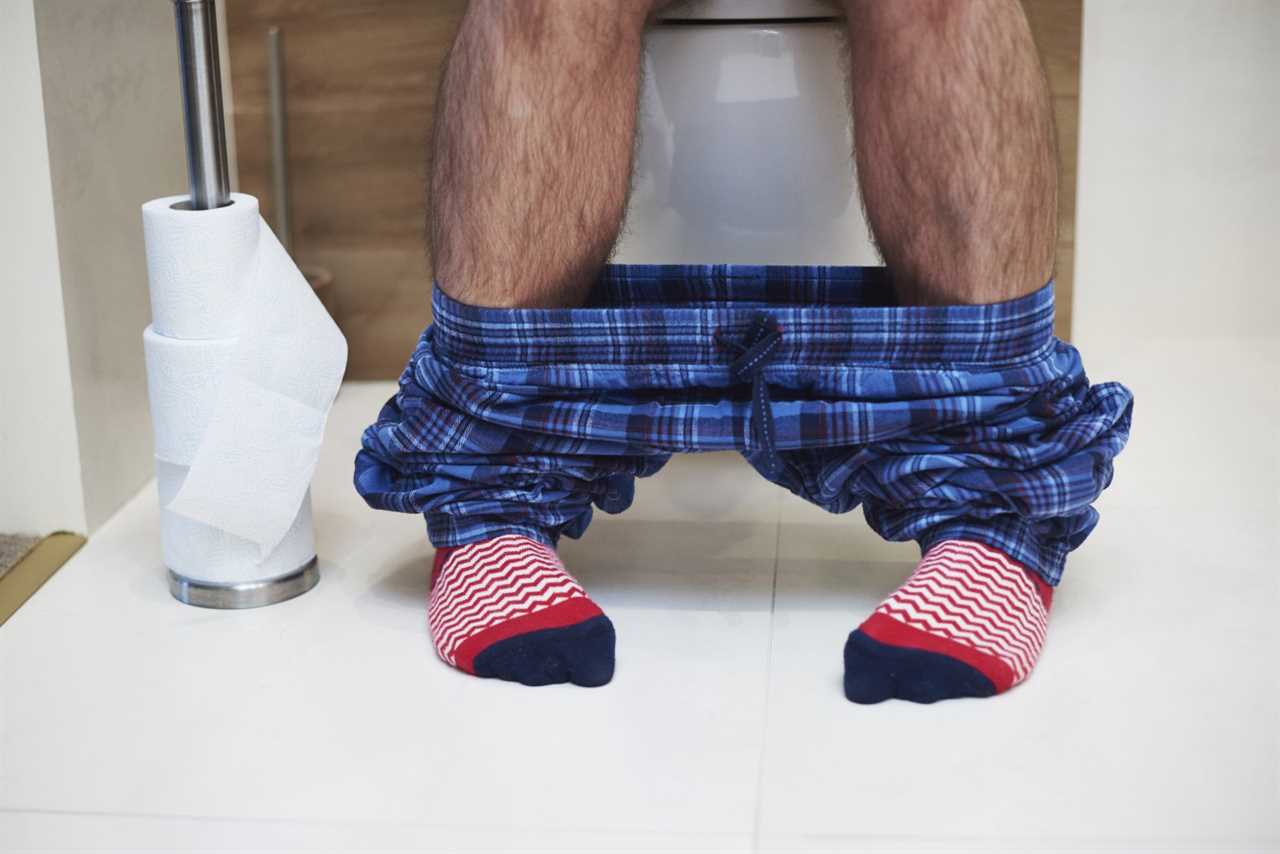CATCHING cancer early can be the difference between life and death.
And it’s no different for bowel cancer, a disease which claims the life of 46 Brits each day, according to Cancer Research UK.

The most obvious red flag when it comes to bowel cancer is finding blood in your stool
Bowel cancer, also known as colon cancer, is the second deadliest form of the disease in the UK.
Early diagnosis saves lives and is why Trending In The News launched the No Time 2 Lose campaign in April 2018, calling on the Government to lower the screening age for the disease from 60 to 50.
Bowel Cancer UK also previously launched its ‘Never Too Young’ campaign after it was revealed that millions of people were unaware that you could get bowel cancer under the age of 50.
Here are the three symptoms to watch out for when you go to the loo:
1. Blood
One of the most obvious red flags when it comes to bowel cancer is finding blood in your stool.
Bowel Cancer UK says: “There are several possible causes of bleeding from your bottom or blood in your bowel movements (poo).
“Bright red blood may come from swollen blood vessels (haemorrhoids or piles) in your back passage. It may also be caused by bowel cancer.
“Dark red or black blood may come from your bowel or stomach. Tell your doctor about any bleeding so they can find out what is causing it.”
2. Change in bowel habits
If you’ve experienced a change in your normal toilet habits then you should book in with your GP.
This could be that you need to go to the toilet more often or that you aren’t going as consistently.
Bowel Cancer UK says that this might also feel like you are unable to fully empty your bowels when you go to the toilet.
3. Pain or lump
Bowel Cancer UK says: “You may have pain or a lump in your stomach area (abdomen) or back passage. See your GP if these symptoms don’t go away or if they’re affecting how you sleep or eat.”
While these are the three main symptoms that will impact your toilet habits, you should also look out for unexplained weight loss and tiredness.
The majority of people with these symptoms won’t have bowel cancer, but it’s important that you speak to your GP if you’re worried.
These symptoms could also be a sign of less serious conditions such as constipation, piles, diarrhoea, anal fissures, irritable bowel syndrome and Crohn’s disease.
If you are concerned you could keep a symptom diary so that when you do visit your GP you have a better understanding of how long your symptoms have been going on for and how they may have changed.






